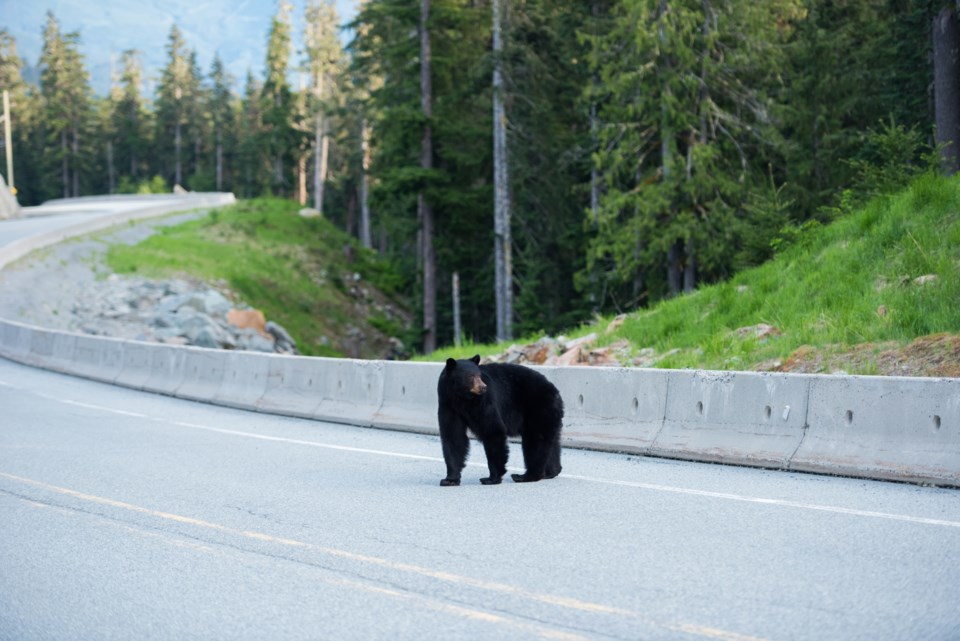With spring finally arriving in the Sea to Sky, the trees are beginning to bud, the temperatures are slowly rising, another ski season is coming to an end—and the region’s bears are coming out of hibernation.
From breaking into cars to scavenging through garbage, the bears that call Whistler home are both a nuisance at times and one of the main attractions to the Whistler area in the summer months.
With the bears waking up, the Conservation Officer Service (COS) and bear advocates are reminding people to clear their properties of any wildlife attractants.
"In Whistler, or really any community, we ask people to secure every attractant. This includes garbage, compost, pet food, bird feeders, everything a bear can feed on. It's very important in a residential area to be secure all the time," said COS Sgt. Simon Gravel.
People can often get careless about attractants in the winter months, and then find themselves caught off guard come spring, Gravel said—which is unfortunate as bears are very quick learners.
“So as soon as [a bear] finds a source of food, they will keep revisiting the location. You can imagine a bear in the backyard is not ideal. Often they walk by, but if they see a backyard to find a good meal, it can lead to a very bad situation," Gravel said.
"If you see a bear, stay calm and leave the area. It's important not to approach a bear to take a picture. Don't teach the bear a positive encounter with a human that just reinforces the fact that they are welcome there, that they are comfortable ... we don't want that."
Under the Wildlife Act, it is an offence to attract bears to “any land and premises,” which can lead to stiff fines.
Last year in the Sea to Sky region, there were more than 4,000 calls to the COS relating to wildlife. Of those, 256 calls were specifically about bears in Whistler.
Most of the bears that come into Whistler are from vulnerable bear populations, according to Ellie Lamb, a bear behaviour and communications educator who has worked as a bear viewing guide for 24 years.
The animals are usually motivated to enter communities by a search for safety, Lamb said.
"Young bears, old bears, injured bears, sick bears. It's the vulnerable population that lives close to communities. Not big, healthy bears; they are more likely to be out farther away," Lamb said.
"Bears are peaceful animals. They generally are easy to get along with, and understanding that and knowing and learning about bears, they are looking for an easy coexistence if they happen to be around people."
People should call the Report All Poachers and Polluters (RAPP) phone line if they encounter bears in “non-suitable” areas, Gravel said.
"We have a lot of bears in Whistler, so if there is a bear grazing on a golf course or green space, we don't need to know,” he said. “But we do want to know if the bear is on school property or a confined space, [or] if the bear is accessing any attractants, so we can address that as well and hold people accountable for negligence.”
The RAPP line can be reached at 1-877-952-7277.






